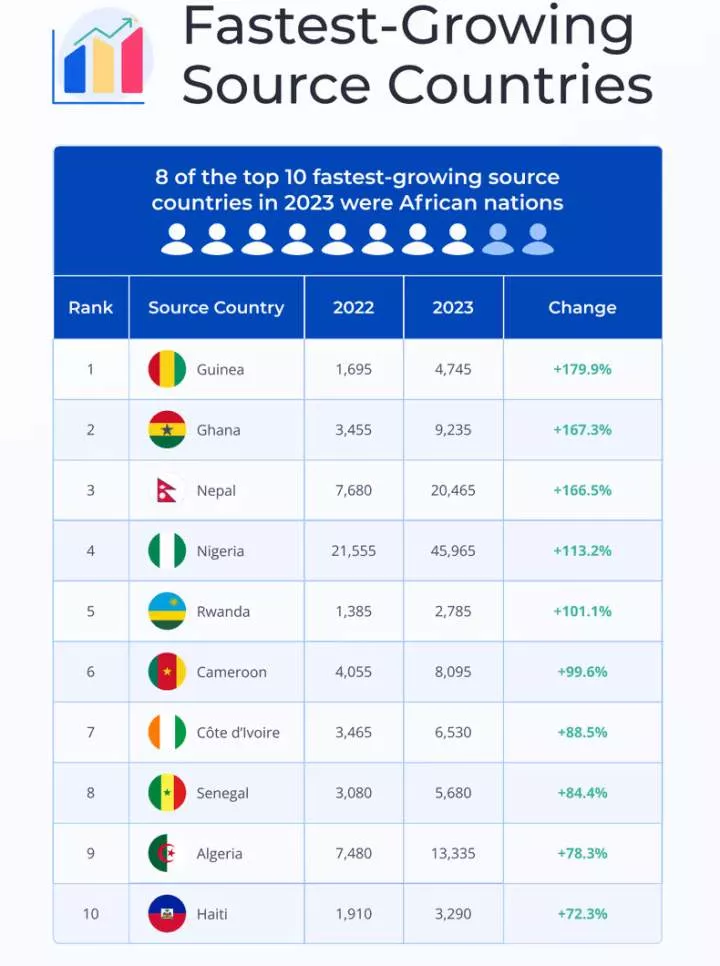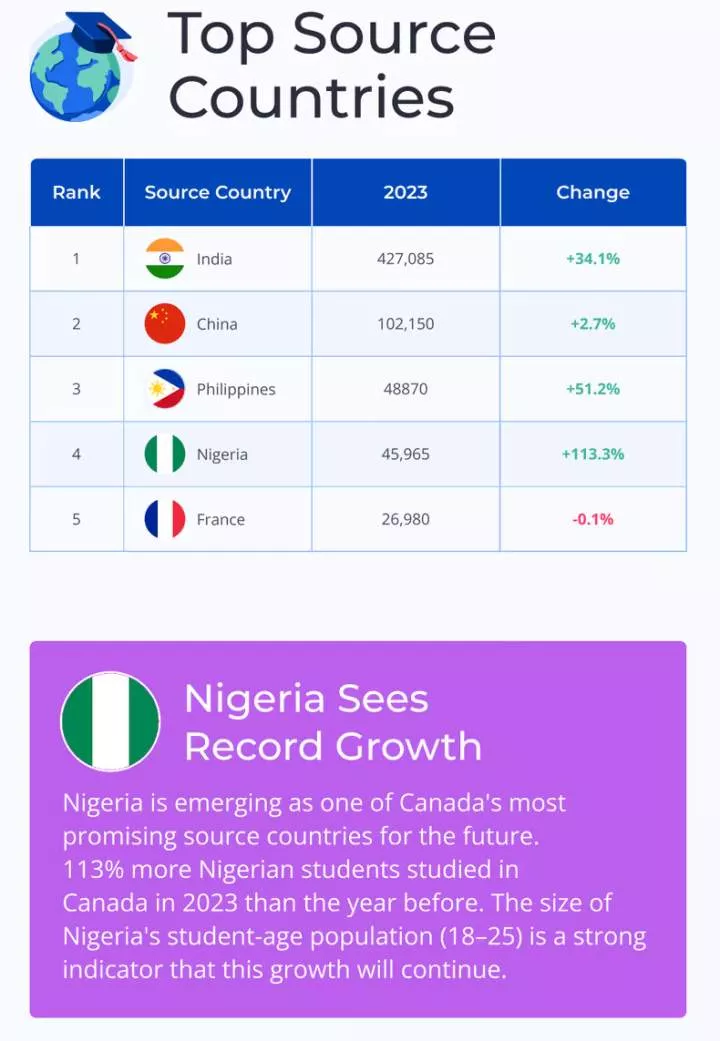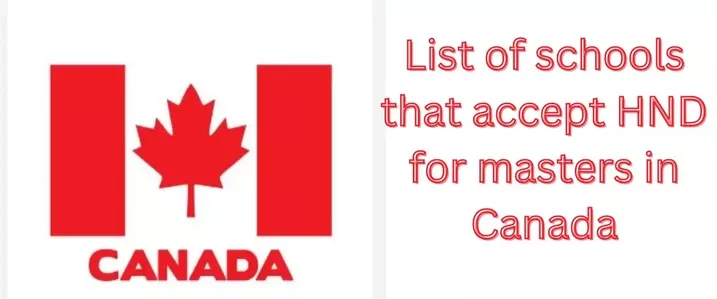Growth in Canada's international education sector has typically been driven by Indian and Chinese students, particularly by the former in recent years. However, a new report has revealed that eight (8) of Canada's top 10 fastest-growing student populations are from African countries.

The report, published by ApplyBoard, analysed Canadian study permit trends and revealed that Guinean, Ghanaian, and Nepali students had the highest growth rates among all international students with valid study permits in 2023.
According to the report, the total number of Guinean students grew by 180% compared to 2022. Over the same period, the number of Ghanaian students in Canada grew by 167%, and the number of Nepali students increased by 166%.

Guinean, Ghanaian, and Nepali students had the highest growth rates among all international students with valid study permits in 2023.

Nigerians currently account for over 4% of Canada's total international student population in 2023.
The report also highlighted that the number of Nigerian students in the country more than doubled last year as Nigerians currently account for over 4% of Canada's total international student population in 2023.
Canada implements 35% reduction in international student admissions to stabilise growth
However, Canada's recently introduced international student cap is expected to bring changes to these trends in 2024. According to the report, one potential downside of these new policies worth flagging is that institutions could shy away from African applicants due to their low (but rising) approval rate compared to the rest of the world.
"Because schools will be allotted a limited number of applications to accept, they could feel disincentivised from accepting applications from countries with historically low approval rates," the report noted.
The Canadian government's recently announced student cap will be implemented based on provincial population levels. However, it remains too early to forecast exactly how these trends will shift in 2024 in light of the new student cap, proof of finance requirements, trusted institution framework, and post-graduation work permit (PGWP) eligibility restrictions.

















Comments